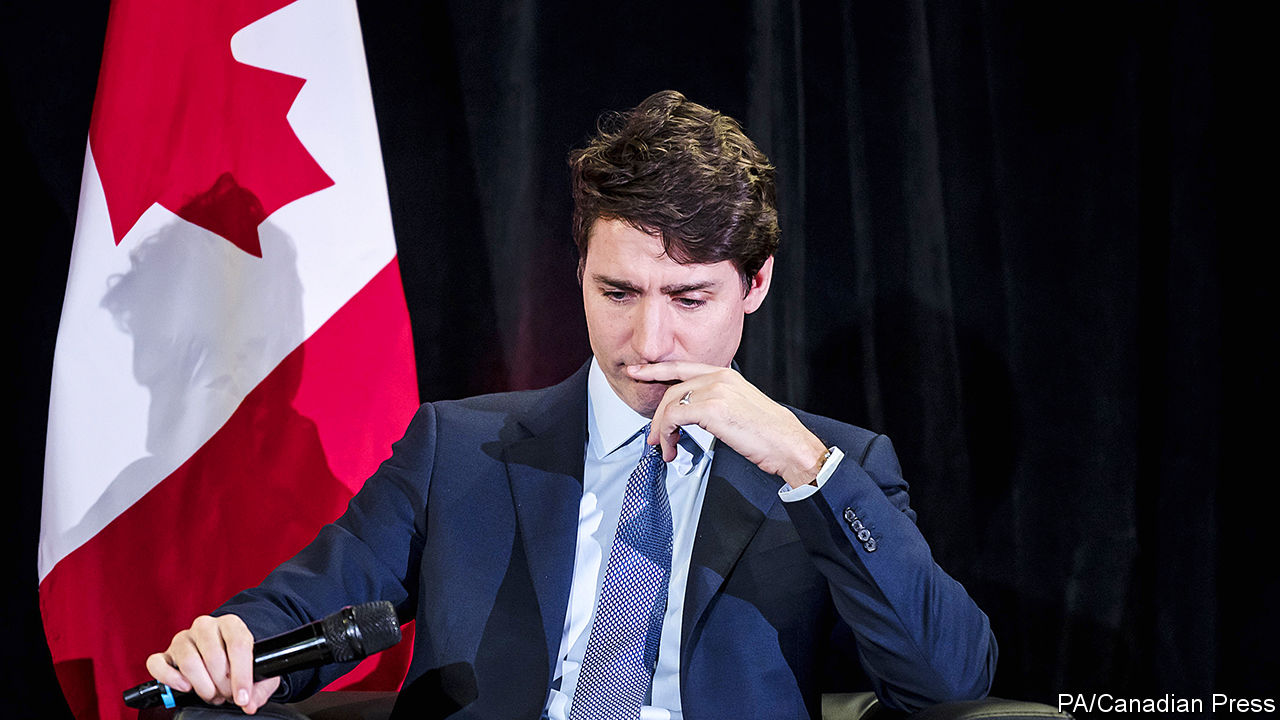Canadian PM Justin Trudeau was, in his honeymoon period, touted as a fresh face in politics, preaching a centrist liberal agenda with a progressive leaning. With his focus on building the middle class, promoting equality, and protecting and bolstering public services, he argued his case effectively. With the election of Trump as President of the US, Trudeau quickly became the symbolic antithesis of his American counterpart.
Trump is brash, confrontational, and unfiltered. Trudeau is collected, measured, and agreeable. Articles were published mocking Trump’s bizarre and mysterious hair (Toupee? Comb-over? Recently deceased pet?), his Oompa-Loompa-inspired tan, and his excess weight. Conversely, Buzzfeed published an article in 2017 with the headline ‘Literally Just 27 Really Hot Photos of Justin Trudeau’, and the internet collectively swooned over the political dream boat of Canada, come to save the masses from the exploitation of the wealthy one per cent. But even though rhetoric and charisma can secure an election, far more is needed to succeed after the race has been won in order to build a successful legacy.
One of the central concerns of contemporary liberal policy is how to limit and combat climate change. As a country with a huge land mass and a comparatively sparse population, Canada has the potential to meet its energy needs from completely renewable sources, with enough investment, expertise and innovation. Vast, unpopulated land could be used for mass solar panel systems or huge wind farms. With Canada at the forefront of the Paris climate talks, pushing for and achieving an international agreement to limit the planet’s temperature rise to 1.5C, it would be apt that they lead by example and begin wide scale conversion to green energy sources.
Under Trudeau, though, Canada has recommitted to exploiting the Alberta tar sands, which when processed, would yield 173bn barrels of oil for sale to the USA. According to Oil Change International, the burning of that oil alone would contribute thirty per cent of the carbon needed to pass the same 1.5C Paris Agreement limit. Instead of leading the world as a model for renewable energy, Canada, a country with around 0.5% of the world’s population, will facilitate and profit from the sale of effectively a third of the Earth’s sustainable carbon budget.
The foundation of Trudeau’s hypocrisy is not so mysterious when the influence of petroleum lobby is considered. In January 2017, Trudeau stated that use of Alberta’s oil sands needed to be phased out. Later in the same month, he claimed that he ‘misspoke’, sharply backtracking from his earlier, progressive sentiment that had infuriated communities reliant on oil profits to survive. Soon after, at the March 2017 CERNWeek conference in Houston, Texas, Trudeau’s speech to oil and gas executives seemed to reveal his true motives of appeasing big business at the expense of environmental welfare. “No country would find 173 billion barrels of oil in the ground and just leave them there,” he said. However, leaving that oil untouched is exactly what is necessary in order to radically reduce the threat that climate change poses to the worldwide community. The extension to the Trans Mountain Pipeline, necessary to transport the greater quantities of oil from Alberta, will cost as much as $9 billion: how far could renewable energy technologies be advanced in Canada if that investment was redirected?
The most catastrophic blow to Trudeau’s government came earlier this year, when it was alleged that he had pressured Jody Wilson-Raybould, then Justice Minister, to drop criminal charges against SNC-Lavalin, a Montreal-based company accused of bribing Libyan officials with $47.7 million, defrauding the Libyan government to the tune of nearly $130 million. Confronted with legal retaliation from the Canadian government, SNC-Lavalin threatened to move their activities to London, risking thousands of jobs. The PM reminded her that, if these jobs were lost, the impact on the upcoming provincial election in Montreal could be politically damaging to both the Liberal Party and him personally.
If SNC-Lavalin has broken the law, then the political impact of the company’s conviction cannot justify allowing criminal actions to be swept under the rug. Due to this alleged intimidation and the conflict of interest it suggests, two of his cabinet ministers have resigned, as well as his top advisor and long-time friend Gerald Butts, who denied that anyone put pressure on the attorney general, but stated: “it is in the best interests of the office and its important work for me to step away.” Trudeau now has the near impossible task of appeasing SNC-Lavalin, yet still maintaining his for-the-people appearance, as well as winning back the trust of his own government.
Despite his progressive masquerade, Trudeau still puts profit and power above all else. The examples of the Alberta oil sands and SNC-Lavalin are far from exhaustive; many other cases of questionable political manoeuvring or policies are apparent in his time in office.
It is true that Trudeau is not Trump, but it is also clear that he is not the liberal saint that he is sometimes professed to be.
Image Credit: PA/Canadian Press

